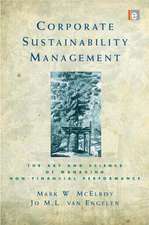Economics and Ecology: New frontiers and sustainable development
Editat de Edward B. Barbieren Limba Engleză Paperback – 25 sep 2012
| Toate formatele și edițiile | Preț | Express |
|---|---|---|
| Paperback (1) | 636.80 lei 6-8 săpt. | |
| SPRINGER NETHERLANDS – 25 sep 2012 | 636.80 lei 6-8 săpt. | |
| Hardback (1) | 643.00 lei 6-8 săpt. | |
| SPRINGER NETHERLANDS – 31 aug 1993 | 643.00 lei 6-8 săpt. |
Preț: 636.80 lei
Preț vechi: 749.19 lei
-15% Nou
Puncte Express: 955
Preț estimativ în valută:
121.88€ • 126.76$ • 102.14£
121.88€ • 126.76$ • 102.14£
Carte tipărită la comandă
Livrare economică 14-28 martie
Preluare comenzi: 021 569.72.76
Specificații
ISBN-13: 9789401046633
ISBN-10: 9401046638
Pagini: 224
Ilustrații: XIV, 205 p.
Dimensiuni: 155 x 235 x 12 mm
Greutate: 0.32 kg
Ediția:Softcover reprint of the original 1st ed. 1993
Editura: SPRINGER NETHERLANDS
Colecția Springer
Locul publicării:Dordrecht, Netherlands
ISBN-10: 9401046638
Pagini: 224
Ilustrații: XIV, 205 p.
Dimensiuni: 155 x 235 x 12 mm
Greutate: 0.32 kg
Ediția:Softcover reprint of the original 1st ed. 1993
Editura: SPRINGER NETHERLANDS
Colecția Springer
Locul publicării:Dordrecht, Netherlands
Public țintă
ResearchCuprins
1 Introduction: economics and ecology – the next frontier.- 1.1 A short parable.- 1.2 Natural capital, economics and ecology in development.- 1.3 Outline of the book.- References.- 2 Environmentally sustainable development: Optimal economic conditions.- 2.1 Introduction.- 2.2 A model of environmentally sustainable economic activity.- 2.3 Optimal sustainable economic growth.- 2.4 Conclusions.- References.- 3 Ecological economic systems analysis: Order and chaos.- 3.1 What is systems analysis?.- 3.2 Scientific uncertainty: beyond risk, into the abyss.- 3.3 Conclusions.- Acknowledgements.- References.- 4 Sustainable agriculture: The trade-offs with productivity, stability and equitability.- 4.1 Introduction.- 4.2 Agroecosystems.- 4.3 The measurement of agroecosystem properties.- 4.4 Trade-offs.- 4.5 Conclusions.- References.- 5 Stress, shock and the sustainability of optimal resource utilization in a stochastic environment.- 5.1 Introduction.- 5.2 An ecological model.- 5.3 The management problem.- 5.4 A simulation.- 5.5 The economic environment and ecological stress.- 5.6 Stress, shock and the discount rate.- 5.7 Conclusions.- References.- 6 Economic and ecological carrying capacity: Applications to pastoral systems in Zimbabwe.- 6.1 Introduction.- 6.2 The productivity of CA cattle: What is the economic CC?.- 6.3 Ecological sustainability: Limits to livestock numbers in CAs.- 6.4 Investigating land degradation.- 6.5 The determinants of ecological CC: How do cattle survive in CAs?.- 6.6 Livestock management in variable environments: Some policy implications.- 6.7 Conclusions.- Acknowledgements.- Archival sources.- References.- 7 Tropical forests and biodiversity conservation: A new ecological imperative.- 7.1 What is biodiversity?.- 7.2 What do we know aboutbiodiversity?.- 7.3 The role of tropical forests as ‘sources’ of global biodiversity.- 7.4 Interpretations of biodiversity for planning.- 7.5 Issues concerning biodiversity and tropical forests.- 7.6 Empirical efforts to research and resolve these issues.- 7.7 Conclusion.- References.- 8 Optimal economic growth and the conservation of biological diversity.- 8.1 Introduction.- 8.2 The species-area relation.- 8.3 The model.- 8.4 Solution to the autonomous control problem.- 8.5 Solution to the nonautonomous control problem.- 8.6 Conclusions.- Acknowledgements.- References.- 9 The viewing value of elephants.- 9.1 Introduction.- 9.2 The viewing value of elephants.- 9.3 Contingent valuation method.- 9.4 Safari expenditures in Kenya.- References.- 10 Ecology and economics in small islands: Constructing a framework for sustainable development.- 10.1 Introduction.- 10.2 The vulnerabilities of island economies and island ecologies.- 10.3 Islands as opportunities for sustainable development.- 10.4 Frameworks for sustainable development.- References.- 11 Sustainable economic development: Economic and ethical principles.- 11.1 Introduction.- 11.2 Weak and strong sustainability paradigms.- 11.3 The valuation of environmental resources.- 11.4 Sustainability and ethics.- 11.5 Conclusions.- References.- 12 Postscript.- References.
Recenzii
Interesting and useful - Integrated Environmental Management












